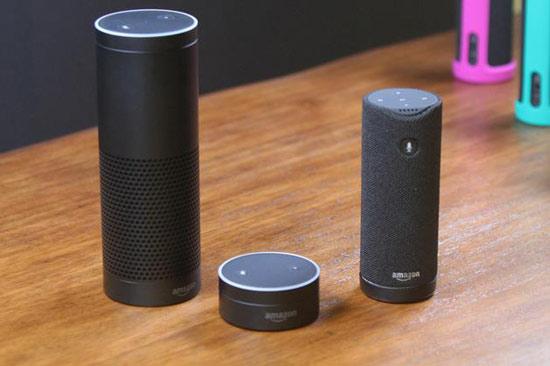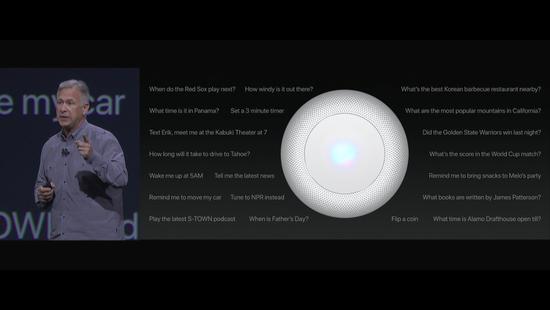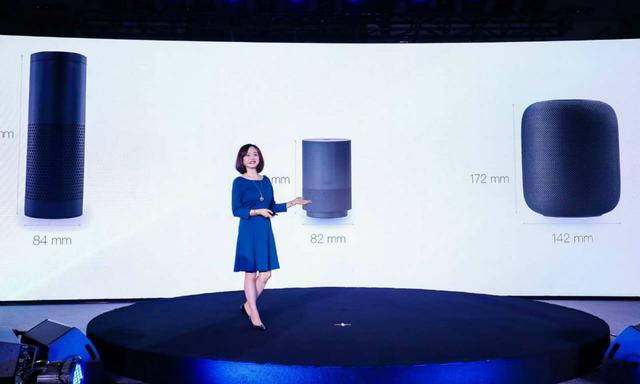OFweek Medical News With Amazon, Apple, Google and domestic Internet companies such as Baidu, Tencent, and Xiaomi launching smart speaker projects, the field has become extremely hot. On July 5th, Ali artificial intelligence laboratory released smart speaker Tmall Elf X1, Ali also officially entered the battlefield. After the establishment of Iron Brothers, popular smart speakers in the market can basically be divided into the following two categories. One is to use smart speakers to cut into the smart home area where home is the main application scenario. Speakers exist as a central control platform, such as Apple, Both Google and Xiaomi have such ambitions. At this time of the Tmall Elf X1 conference, there are also fan-based fans, humidifiers, and lighting controls. Second, voice recognition is the main entry point, and content ecology is the main selling point. There are also blueprints for smart home applications. However, due to various problems, smart speakers with aspirations are activated by intelligent voice control to activate the content ecology. The popular apps such as the Himalayas and Android are built into various smart speakers. Of course, most people would think that smart speakers based on smart home application scenarios represent the future, and almost all manufacturers also think that they are moving forward. However, if there are no accidents, quite a few smart speakers should be reduced to the position of voice-controlled players. Why Echo is better than HomePod? As far as the global market is concerned, smart speakers mainly include Amazon’s Echo, Google’s Google Home, and Apple’s HomePod. According to eMarketer’s data, in the first quarter of this year, the market share of Amazon’s Echo reached 70.6. %, Google Home accounted for 23.8%, other manufacturers share the remaining 5.6% market share. Although at the developer conference in June 2017, Apple introduced the smart speaker HomePod in a high profile, but Tiege still pessimistically believes that HomePod can hardly shake Echo's dominance if it is not too much of an accident. This will also be Apple's current status. One of the few popular products. We don’t discuss HomePod later than Echo’s half-monthly listing. Apple launched smart-recognition Siri on iPhone 4S, and released HomeKit, a smart home platform in 2014. Apple’s smart home area is “a big early morning but it’s late. ". It is not merely a question of time that the iron brother sees bad HomeKit, on the contrary if apple can improve in the following respects, it is only a matter of time to counterattack Echo. First, although HomeKit was released early, there are only a handful of hardware vendors that support HomeKit. There are only 13 types of accessories that support HomeKit on Apple's official website in China, and there are only 39 products on the official website of the United States. The basics are lights and cameras. Door locks and other primary products. This also means that the application scenario of HomePod using HomeKit as a human-computer interaction platform will be greatly limited, and too few access hardware products will make HomePod very likely to become a player speaker. In contrast, the advantage of Echo is relatively obvious. Not only does Amazon have only content ecology. For example, users can directly let Echo read the contents of Kindle, and accumulate more than 10,000 third-party skills. Users can use Echo, the voice assistant Alexa. With orders issued, hardware manufacturers have also begun to actively participate in the Echo ecosystem under the stimulation of over 10 million sales. The Echo application scene has also been extended from early control lights to multiple scenarios. Second, the Closeness of HomePod Since HomePod is a smart speaker based on the smart home platform HomeKit, it also means that its application scenario is limited by HomeKit. To use HomePod normally, users must do two things: 1. For Apple users, HomePod does not support Bluetooth, music can only be played with Apple Music, HomePod users, then it may not be possible to use relatively low-cost BLE (Low-Power Bluetooth) products; 2. There must be enough hardware to support HomeKit, as explained earlier. Apple's closure makes it subject to its closed ecology both in terms of hardware and software, and it is not far from Google. If the TV has Chromecast built in, or if Chromecast streaming is installed on the port, the user will The TV can be controlled via Google Home, but at the HomePod site, Apple officials do not even indicate the connection between HomePod and Apple TV. The above is not difficult to find, although Apple is good at hardware, but also early in the field of home intelligence through siri, beat and HomeKit layout, but due to the limitations of its genes and operational concepts, in the strong Echo, HomePod is difficult to have an opportunity to come back. Who is Echo in China? If the smart speaker represents the future of human-computer interaction, then Amazon Echo is of course an advanced model. Its core is: 1. Technology in speech recognition; 2. Hardware vendor support; 3. Open business ecosystem. The three are indispensable. According to Tiege's view, the threshold of the hardware part of the smart speaker is not too high, and the Tmall X1 is also ahead of its peers in many aspects, such as a 6-microphone ring array, capable of achieving 5-meter range speech recognition in a home environment, SmartAudio Compared with the mainstream chips on the market, the professional processing chip has improved processing efficiency by 25%, reduced power consumption by 32%, and is 25% smaller than similar top-level products. Ali Xue, the person in charge of artificial intelligence experiments at the conference, stated at the press conference. The body is reduced to reduce the product's sense of intrusion in the home. Tmall Elves also provide third-party development in music, home control, shopping, and skills markets. This is also an open platform. From this point of view, the target of the Lynx X1 is the smart home center. So, can Tmall Elves gain support from hardware vendors and get enough usage scenarios? As mentioned in the previous article, Echo's first-mover advantage and its leading position in hardware design have enabled it to rapidly gain access to tens of millions of users. In the face of a strong market, Echo eco-business support means that it has access to a potentially huge market. Naturally increase sales. Echo's hardware use ecology is caused by a massive number of users. Looking back at Tmall Genie X1, on the one hand, backed by Ali's more than 500 million active users, its market potential is more obvious. The vendor’s support for Tmall Genie means that it may convert Ali’s hundreds of millions of users into product users. Ali's ecosystem has gained considerable sales, which is the driving force behind the vendor's support for the Tmall Elves. On the other hand, Ali’s smart system has established deep cooperation with many manufacturers at home and abroad through mobile app in the field of home intelligence. With good merchant support, with the support of first-tier companies such as refrigerators, sweeping robots, smart door locks, and purifiers, Tmall Genie has a rich application scene at the beginning of its release. Get user support, and then attract more hardware vendor support. For hardware manufacturers, going smart home is not just a superposition of functions, but a comprehensive change in production and operation processes, not only to bear the high costs of product opening, but also to conduct business in R&D, sales, and even after-sales service. Re-combine, if there is no appreciable sales prospects, the traditional hardware business will not quickly adapt to the changes in smart homes, can not bring sales to manufacturers, which is the biggest problem Apple HomePod. In contrast, the Tmall Elves backed by Alibaba E-Commerce have significantly more advantages in this regard. Domestic Internet manufacturers have just begun the exploration in the field of smart speakers, and they have already made a lot of forward-looking remarks and attempts. However, Tiege still reminds us that solving hardware and voice recognition can certainly create barriers, but whether the entire ecosystem can attract manufacturers is the key to success. Otherwise, smart speakers really become smart players. Usb Cable,Otg Usb Cable,Usb Micro B Cable,Micro Usb Cable Dongguan Swan Electronic Technology Co., Ltd , https://www.swanconnector.com

